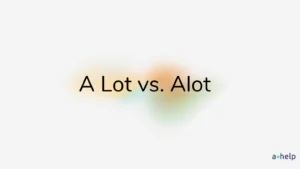In any language, certain words always stand as notable exceptions to the rules, challenging our memory and pronunciation skills. English is no stranger to this phenomenon. Among the prime examples of such exceptions is the word “Wednesday,” a term, frequently used, yet still remaining a stumbling block for many due to its unique spelling and pronunciation. To give a short answer, to spell “Wednesday” you need to say it letter by letter as W-E-D-N-E-S-D-A-Y. Yet, if you are curious to dig into the questions of why it is spelled that way and which other words have odd pronunciation so not to rush to a grammar check online every time, you should go on reading our article.

✅ AI Essay Writer ✅ AI Detector ✅ Plagchecker ✅ Paraphraser
✅ Summarizer ✅ Citation Generator
Wednesday: Meaning and Etymology
We all know “Wednesday” as just a word indicating the third day of the working week. However, it is also a name that has its roots in history and mythology. The etymology of “Wednesday” traces back to Old English Wōdnesdæg, which translates to “Woden’s day.”

Woden, known as Odin in Norse mythology, was a prominent god associated with wisdom, healing, and war. This naming convention is part of a broader tradition where the days of the week are named after gods and celestial bodies, a proof of the intertwining of linguistic evolution and cultural beliefs.
Wednesday: Correct Spelling and Pronunciation
The correct spelling of this mid-week day, “Wednesday,” often baffles English speakers, particularly due to the silent ‘d’ that seems to defy pronunciation logic. Phonetically, it is pronounced as /ˈwɛnzdeɪ/, ignoring the ‘d’ and blending the sounds into a more fluid expression. This inconsistency between spelling and pronunciation shows the quirky nature of English spelling rules.

For example, when teaching the correct pronunciation of “Wednesday,” educators often emphasize the silent ‘d’, encouraging learners to practice with phrases like, “I have a meeting scheduled for Wednesday,” where the word flows smoothly without the need for a pronounced ‘d’.
I always schedule my doctor’s appointments for Wednesday, as it’s the least busy day for me.
The team decided to move the weekly meeting to Wednesday mornings to fit everyone’s schedule.
The forecast predicts heavy rain this Wednesday, so it might be wise to bring an umbrella to work.
Similar Confusing Words in English
“Wednesday” is not the lone ranger among the sea of English words with peculiar spellings and pronunciations. The English language has many words that can be tricky to spell or say for both native speakers and learners. The reason for this is that English has borrowed its vocabulary from many other languages, like Old Norse, Latin, and French. Beyond “Wednesday,” there are several other examples that illustrate the peculiarities of English spelling and pronunciation, challenging the consistency many seek in linguistic rules.
February stands out as a prime example. Commonly pronounced as /ˈfɛbruəri/ or /ˈfɛbjuəri/, the first ‘r’ often becomes a silent passenger in the journey of speech, leading to a widespread pronunciation that overlooks it entirely. This sparks confusion, especially among learners striving for correct pronunciation while dealing with the word’s spelling.
Colonel, a rank in the military, is yet another evidence of the unpredictability of English. Despite its spelling, “colonel” is pronounced /ˈkɜːrnəl/, sharing no apparent correlation between its spelling and sound. Such pronunciation is mostly due to the influence the French and Italian had on English (so you can thank them for your. twisted tongue)
Queue is another word where letters and sounds seem to be in a curious mismatch. The word, meaning a line or a list of data awaiting processing, is pronounced simply as /kjuː/, rendering all but the first letter seemingly redundant. This phenomenon, borrowed from the French language, reflects the idiosyncratic nature of English spelling rules.
Knife, along with many words that begin with a ‘k’ followed by an ‘n’, such as “knot” and “know”, reveals the silent letters that often populate English words. The ‘k’ silently precedes the ‘n’, leaving the initial sound to be /n/, a remnant of Old English where the ‘k’ was once pronounced.
Conclusion
In conclusion, the strangeness of English spelling and pronunciation, illustrated by words like “Wednesday,” “February,” “colonel,” “queue,” and “knife,” reflects the language’s rich history and various influences. While often challenging, these linguistic quirks add depth and character to English, making it a unique combination of sounds and meanings. Embrace these strange aspects and you will enhance your understanding of the language’s complexity and evolution.
FAQ
Follow us on Reddit for more insights and updates.





Comments (0)
Welcome to A*Help comments!
We’re all about debate and discussion at A*Help.
We value the diverse opinions of users, so you may find points of view that you don’t agree with. And that’s cool. However, there are certain things we’re not OK with: attempts to manipulate our data in any way, for example, or the posting of discriminative, offensive, hateful, or disparaging material.